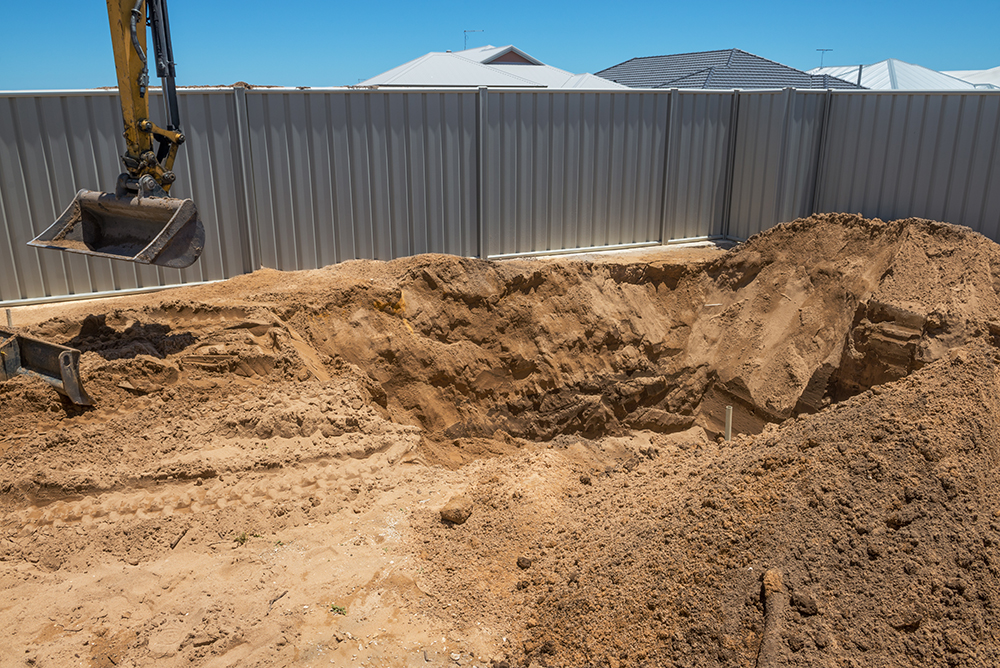On a daily basis, 10 people die from accidental drowning in the U.S. According to the CDC, drowning is the 5th highest cause of unintentional deaths. As pool maintenance and pool care specialists, we are a strong advocate for backyard pool safety. Consider adding additions to your property to increase safety. Which backyard pool additions are necessary for you and which are not?
Because Erik’s Aquatic Care (EAC) operates throughout Bradenton, Lakewood Ranch, Palmetto, Parrish, and Ellenton, FL, we see many varieties of backyard pools. Most pool owners have some type of covering on their patio or lanai. Many others keep their oasis open, without screens or fences or even some sort of gate. Even though EAC works primarily with pools, this blog can be applied to homeowners with any size or style pools, spas, hot tubs, ponds and fountains.
Safety (Circumstances) First
Size matters when it comes to your children, neighboring children and, of course, pets. Your pool may not pose a serious threat to a larger dog such as a German Shepherd. However, it could be fatal for a terrier or chihuahua. The same goes for bigger children. But just because they’re grown and playing in your pool, doesn’t mean they’re safe. Don’t assume anything.
You might still be concerned that smaller pets and younger children could fall into your pool or spa and harm themselves. Community requirements is a topic we’ll discuss in depth later on. You shouldn’t need a requirement in place to have some sort of protective barrier around your pool. Safety should absolutely come first.
 Let’s Talk Community Requirements
Let’s Talk Community Requirements
The biggest reason many communities require fences around pools is for the reasons we just discussed—protecting small children from falling in and drowning. Young children or small pets that could be injured by falling into your pool need to have restricted access to the pool. If your pool is uncovered, your best bet would be to build a high fence around your pool. With an enclosed on your backyard patio or under a screened-in lanai, we would suggest adding a gate inside to separate the pool from unaware guests.
Whether or not you need a fence around your pool or spa will depend on your community. A screen over or around your pool or hot tub, of course, will prevent personal injury. It might not be obvious, but screens can also keep your maintenance costs down and your water cleaner for longer. Screens will prevent many types of bugs and debris from finding their way into your clean water. it can also help to prevent large debris from finding its way into the hot tub.
If you’re considering adding a pool to your property, be proactive and check your local laws first. Does your HOA or community require a specific type of protection, such as a screen over top or a fence around the perimeter? Do you need a permit before beginning installation?
Many areas require fences around above-ground or partially above-ground hot tubs, unless they are more than 24 inches high. Keep in mind, it’s more common for spas to be above ground than your average backyard pool. Therefore, you may not be required to have a fence. Again, it’s always important for you to check with your local laws before installing a permanent addition to your backyard property.
When It’s Time For A Fence
When purchasing an above ground hot tub, it’s less likely that you will want a fence as opposed to an in-ground hot tub. A fence will help protect your family from many dangers of in-ground hot tubs. Additionally, it will even help to keep pools cleaner and more functional.
If you chose to install a hot tub in your sun room or other indoor space, there’s a good chance a fence would be a waste of money. Simply close off the room from the rest of the house with the room’s doors. On the flip side, if your hot tub is being installed outside, consider a fence. Even free-standing hot tubs benefit from a fence as a safety perimeter and privacy.
The biggest factor to consider is the local regulation governing fences around hot tubs and pools. Your local area will likely have some sort of requirement, based on the type of hot tub you install (in-ground or above-ground). If no regulation exists, consider whether or not your family might benefit from a fence around the spa.
Let’s Talk Permits & Clearance
Many West Coast Florida residents who want pools choose an above ground pool. They believe they won’t need a permit to install one. However, that is not necessarily true. If the pool is capable of containing at least 24 inches of water, you will need a permit for it. Most areas also require you to have a safety barrier for above ground pools, if they are less than 48 inches tall.
Some areas do not require permits for above ground pools, as long as those pools are not partially buried in the ground. In general, you will need a permit, even if just for the zoning work that goes into acquiring that permit. Be prepared to put in a little work to have a new place to relax in your backyard.
Before you construct your pool, you must ensure you have the proper clearance regarding your property lines, fencing, wiring, and other underground utilities. Some people believe these are not the homeowner’s concern since an above-ground pool is less maintenance than an in-ground pool. There can be serious consequences that come with ignoring proper permits and placement for your above ground pool so be careful.
Serious Consequences: Tread Lightly
Obstructing major utility lines or breaching property lines is a serious problem when constructing an above-ground pool. Don’t assume that the fence surrounding your home is on the property line. Be sure to understand where you can and cannot dig. Because your swimming pool is above ground, many people believe that it’s governed by the same rules as sheds. In many areas, sheds do not require permits. Truthfully, while many people don’t obtain permits for their sheds, permits are usually still required for any permanent or semi-permanent structure on your property.
An above ground pool can be a great alternative as it often requires less work to build. It can also be safer if you have small children or animals without the proper fencing. Because they’re easier to remove if need be, they’re a great alternative for people who don’t anticipate staying on the property for the long term.
Again, we want to stress to check with your local government before breaking ground. The safest course of action is to assume you do need a permit, even if in the process you discover you don’t actually need one. At the very least, you will know exactly where the utility lines are on your property, so you will not build the pool on top of them.
Erik’s Aquatic Care is always here to answer questions you may have as a current or future pool owner. Cheers!

